
Słupsk: The Hidden Gem of Northern Poland
Situated in the picturesque northern region of Poland, Słupsk is a charming city that boasts a rich history and vibrant culture. This hidden gem is perfect for tourists seeking a blend of historical architecture, scenic landscapes, and cultural experiences. Stroll along the cobblestone streets and marvel at the medieval buildings that tell the tale of Słupsk's storied past. The city is home to the stunning Castle of the Pomeranian Dukes, a must-visit landmark that offers a glimpse into the region's royal heritage. Art enthusiasts will find delight in the Museum of Central Pomerania, which houses an impressive collection of artworks, including the largest collection of works by renowned artist Stanisław Ignacy Witkiewicz, known as Witkacy. Nature lovers will appreciate the proximity to the Baltic Sea, with beautiful beaches just a short drive away. The picturesque Słowiński National Park, famous for its shifting sand dunes, is also nearby and offers a unique outdoor adventure. The local cuisine, featuring traditional Polish dishes, is not to be missed, with many cozy restaurants and cafes ready to welcome you.
Local tips in Słupsk
- Visit the Castle of the Pomeranian Dukes early in the morning to avoid crowds and capture the best photos.
- Try traditional Polish dishes at local restaurants, especially pierogi and bigos.
- Rent a bike to explore the scenic routes around the city and nearby countryside.
- Don't miss the shifting sand dunes in Słowiński National Park, a unique natural wonder.
- Check out the local markets for unique souvenirs and handmade crafts.
Słupsk: The Hidden Gem of Northern Poland
Situated in the picturesque northern region of Poland, Słupsk is a charming city that boasts a rich history and vibrant culture. This hidden gem is perfect for tourists seeking a blend of historical architecture, scenic landscapes, and cultural experiences. Stroll along the cobblestone streets and marvel at the medieval buildings that tell the tale of Słupsk's storied past. The city is home to the stunning Castle of the Pomeranian Dukes, a must-visit landmark that offers a glimpse into the region's royal heritage. Art enthusiasts will find delight in the Museum of Central Pomerania, which houses an impressive collection of artworks, including the largest collection of works by renowned artist Stanisław Ignacy Witkiewicz, known as Witkacy. Nature lovers will appreciate the proximity to the Baltic Sea, with beautiful beaches just a short drive away. The picturesque Słowiński National Park, famous for its shifting sand dunes, is also nearby and offers a unique outdoor adventure. The local cuisine, featuring traditional Polish dishes, is not to be missed, with many cozy restaurants and cafes ready to welcome you.
When is the best time to go to Słupsk?
Iconic landmarks you can’t miss
Park of Culture and Recreation
Discover the beauty of nature and vibrant culture at the Park of Culture and Recreation, a must-visit destination in Słupsk for relaxation and enjoyment.
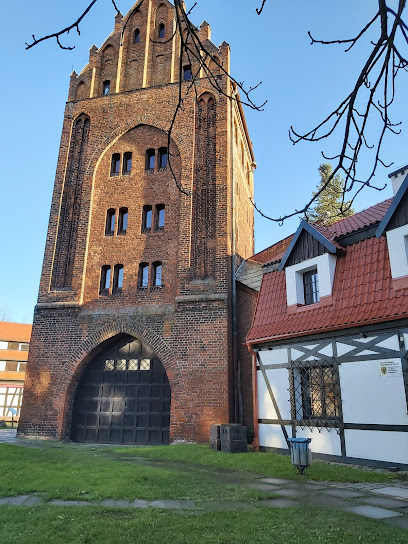
The William Wallace
Experience the best of Słupsk's culinary delights at The William Wallace, where juicy burgers and succulent steaks await every hungry traveler.
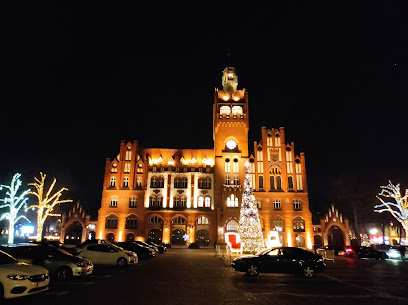
Baszta Czarownic
Explore the Baszta Czarownic in Słupsk, Poland - a historical tower rich in legend, offering stunning views and a glimpse into the past.
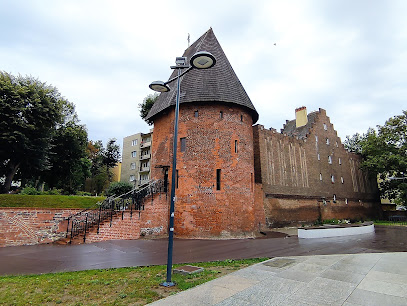
Museum of Central Pomerania in Slupsk
Explore the Museum of Central Pomerania in Słupsk, where history, art, and culture come together to tell the story of a vibrant region.
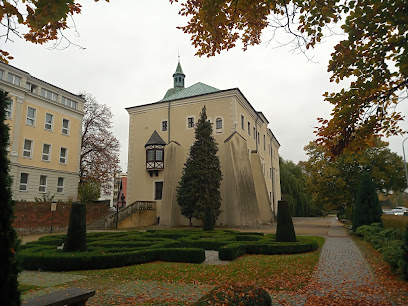
Biały Spichlerz
Explore the rich heritage and artistic treasures at Biały Spichlerz, a must-visit museum in Słupsk showcasing local history and culture.
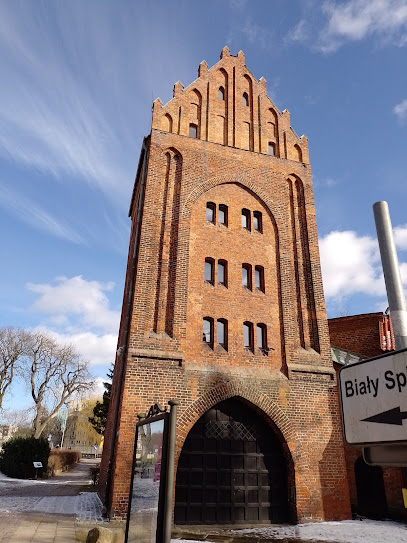
Northern Forest
Discover the serene beauty of Northern Forest in Słupsk, Poland – a tranquil park offering lush greenery and a peaceful retreat for nature lovers.
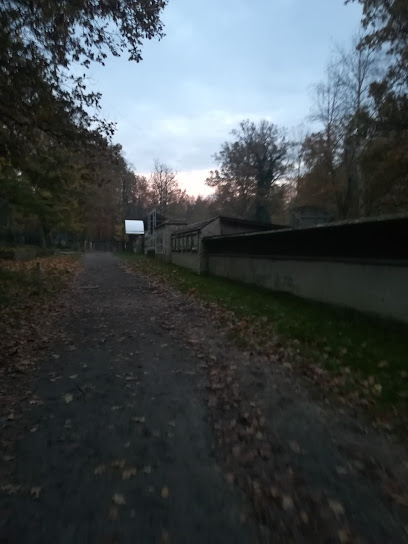
Lasek Południowy
Discover the serenity of Lasek Południowy, a lush park in Słupsk perfect for relaxation, picnics, and immersive nature experiences.
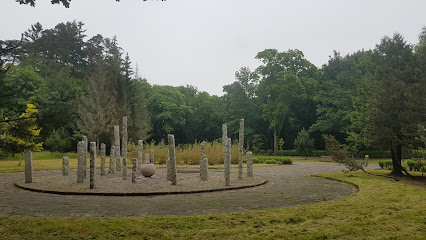
Słupsk Gate
Experience the historical allure of Słupsk Gate, a captivating landmark in Sławno, Poland, rich in architectural beauty and cultural significance.
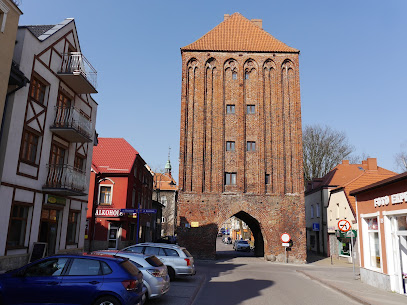
Pomnik Powstańców Warszawskich
Discover the Pomnik Powstańców Warszawskich in Słupsk, a significant war memorial honoring the courage of the Warsaw Uprising fighters amidst serene surroundings.
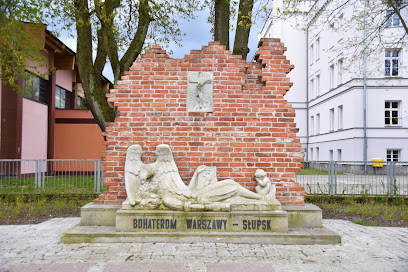
Browar Słupski
Explore the art of craft beer at Browar Słupski, where tradition and innovation blend in every glass in the heart of Słupsk, Poland.
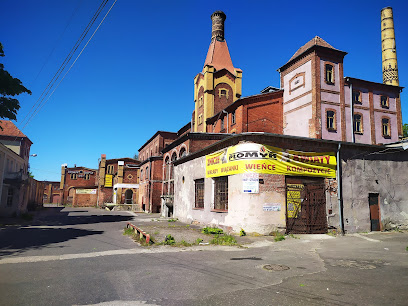
Pomnik Jana Kilińskiego w Słupsku
Explore the Jan Kiliński Monument in Słupsk, a poignant symbol of Polish heroism nestled in a serene park, perfect for history enthusiasts.
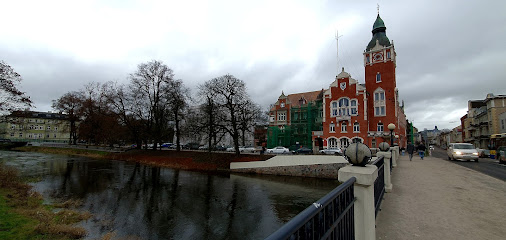
Stare Mury Obronne
Discover the majestic Stare Mury Obronne in Słupsk, a historic site that reveals the city's medieval past and offers stunning views and rich cultural insights.
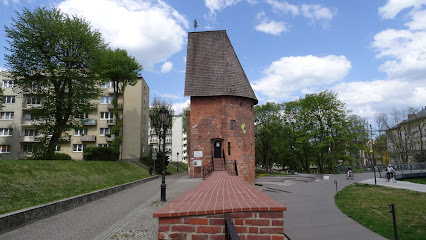
Słupski Letni Jarmark
Discover the vibrant Słupski Letni Jarmark, where local crafts and delicious foods come together in a lively summer market in Słupsk, Poland.
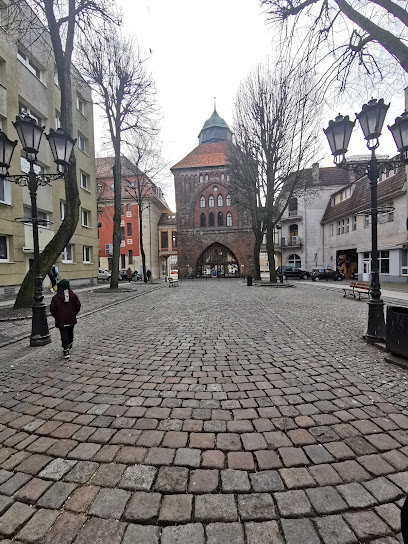
Pomnik Karola Szymanowskiego w Słupsku
Explore the Pomnik Karola Szymanowskiego in Jerzy Waldorff Park, a stunning tribute to Poland's famed composer amidst tranquil natural beauty.
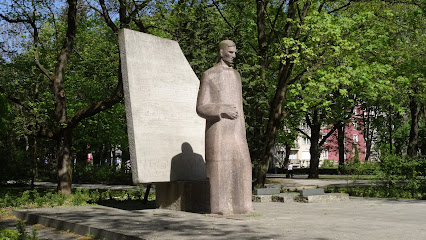
Pomnik Upokorzony w Słupsku
Explore the Pomnik Upokorzony in Słupsk, a beautiful sculpture symbolizing resilience and the city’s rich cultural heritage.
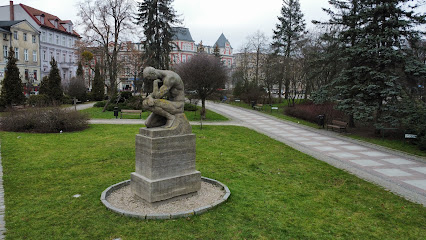
Unmissable attractions to see
Park of Culture and Recreation
Explore the Park of Culture and Recreation in Słupsk for a perfect blend of nature, culture, and relaxation in a serene setting.
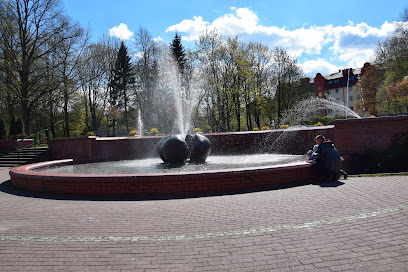
Baszta Czarownic
Discover the magic of Baszta Czarownic, a historic tower in Słupsk that unveils the city's fascinating medieval past amidst breathtaking views.
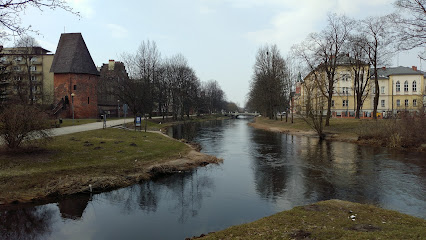
Museum of Central Pomerania in Slupsk
Explore the captivating history of Central Pomerania at the Museum of Central Pomerania in Slupsk, featuring rich collections and engaging exhibits.
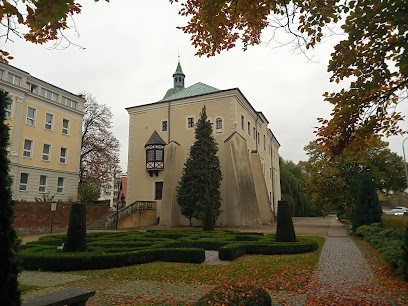
Biały Spichlerz
Discover Słupsk's cultural heritage at Biały Spichlerz, an inspiring museum showcasing the region's history and art in a stunning historical setting.
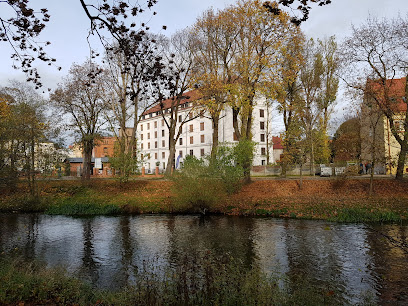
Klasztorne Stawy
Discover the beauty of Klasztorne Stawy in Słupsk, a peaceful park with scenic lakes and lush landscapes perfect for relaxation and outdoor activities.
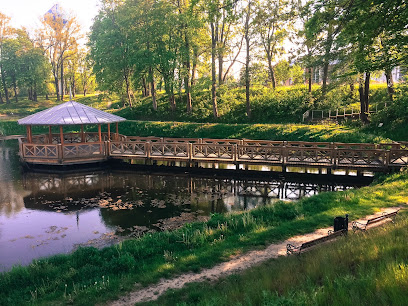
Park linowy
Explore the thrilling challenges of Park Linowy in Słupsk, where adventure meets nature in an unforgettable outdoor experience.
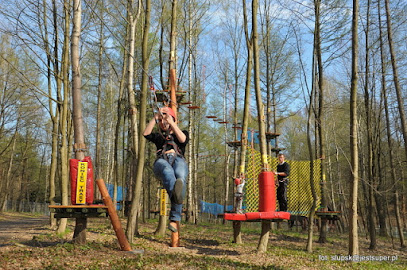
Northern Forest
Explore the enchanting Northern Forest in Słupsk, a serene park perfect for nature lovers and relaxation seekers, all set in a picturesque landscape.
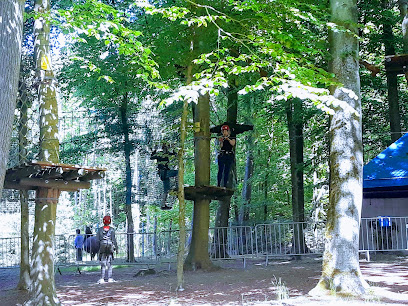
Old Gate
Explore Old Gate in Słupsk – a historical gem showcasing the architectural beauty and rich heritage of Poland.
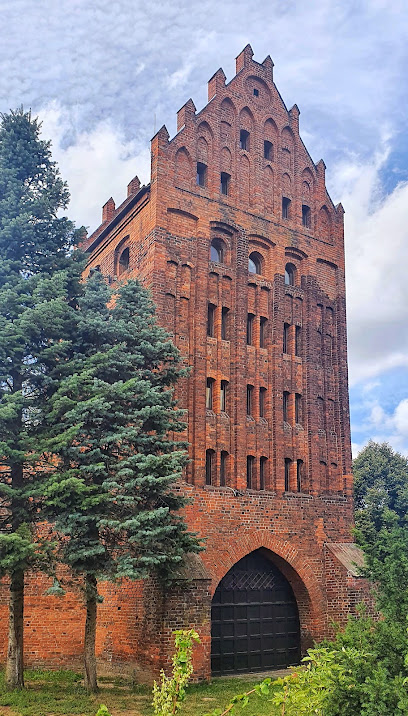
Campfire
Experience serenity at Campfire in Słupsk, a charming tourist attraction perfect for relaxation and outdoor adventures.
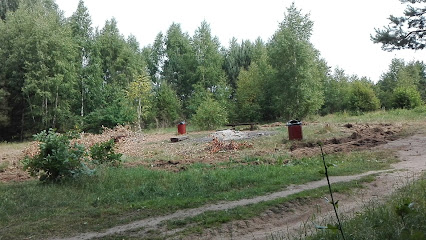
I LOVE SŁUPSK
Explore the enchanting I LOVE SŁUPSK, a vibrant tourist attraction in Słupsk that showcases the city's rich history and cultural charm.
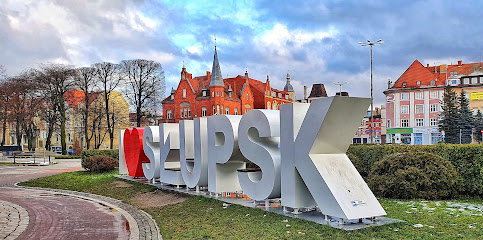
Slupsk's Lucky Bear
Experience the warmth and culture of Slupsk at Slupsk's Lucky Bear, a unique tourist attraction filled with local charm and unforgettable memories.
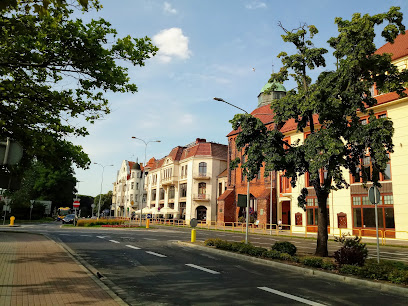
Stare Mury Obronne
Discover the historic charm of Stare Mury Obronne in Słupsk, a captivating tourist attraction showcasing medieval architecture and rich history.
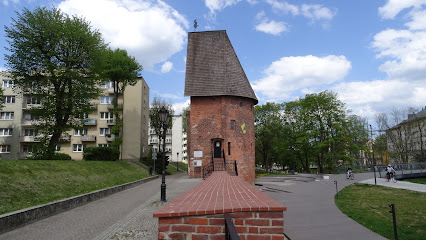
Klawiatura gwiazd festiwalu pianistyki polskiej
Experience the magic of Polish pianism at the Klawiatura Gwiazd in Słupsk, a unique musical tribute set in a serene park environment.
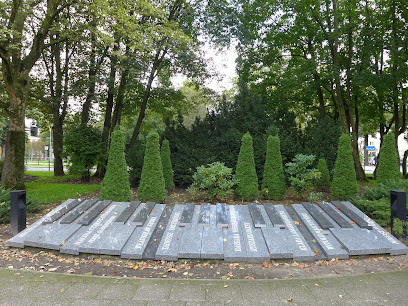
Mural
Discover the stunning mural in Słupsk, a vibrant representation of local artistry and culture, perfect for your travel memories.
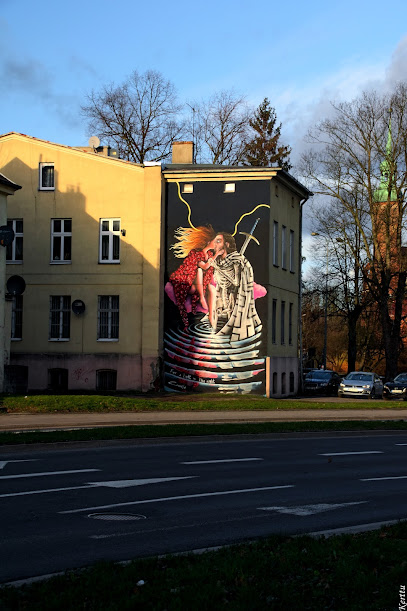
Bear of Beliefs
Experience art and nature intertwined at the Bear of Beliefs in Słupsk, a captivating tourist attraction that embodies local culture and tradition.
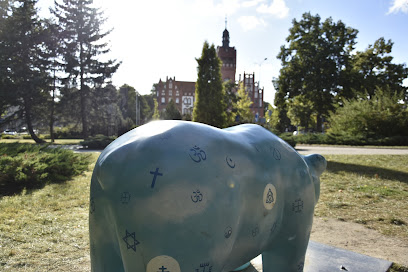
Essential places to dine
McDonald's
Experience familiar flavors at McDonald's Słupsk – your go-to stop for comfort food while exploring Poland's charming city.
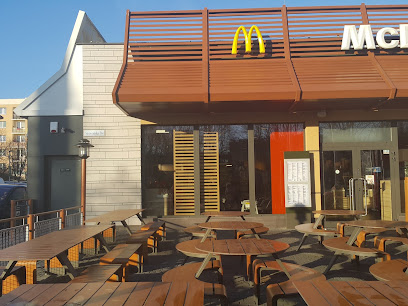
Milkshake Bar
Experience the ultimate American diner vibe at Milkshake Bar in Słupsk - where every sip is a delightful adventure!
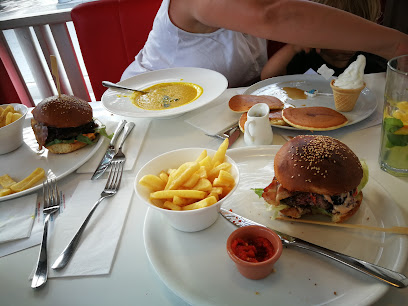
Pod Kasztanem Słupsk
Discover the flavors of Słupsk at Pod Kasztanem – where delicious pizza meets cozy lounge vibes.
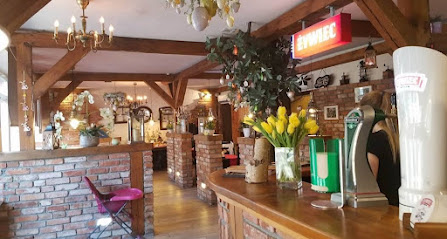
The William Wallace
Discover delicious hamburgers and steaks at The William Wallace – Słupsk's hidden gem offering a cozy dining experience.
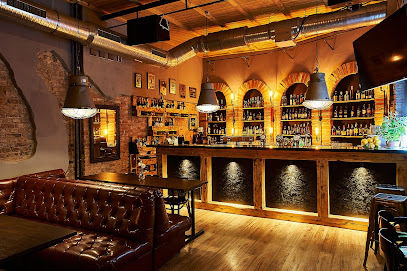
Casa Italia
Experience authentic Italian cuisine at Casa Italia in Słupsk, featuring fresh pasta, wood-fired pizza, and delightful seafood dishes.
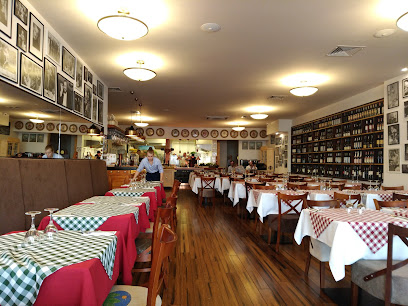
Sayuri Sushi
Discover the exquisite flavors of Thai and Japanese cuisine at Sayuri Sushi in Słupsk - a true culinary gem for food lovers.
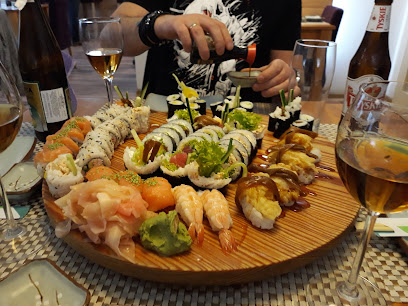
Pizza pazza
Experience authentic Southern Italian flavors at Pizza Pazza in Słupsk - where every slice tells a story.
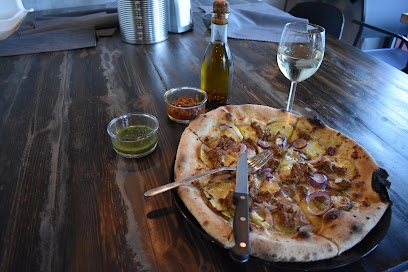
Full Bull
Experience authentic Polish cuisine at Full Bull in Słupsk - where tradition meets flavor.
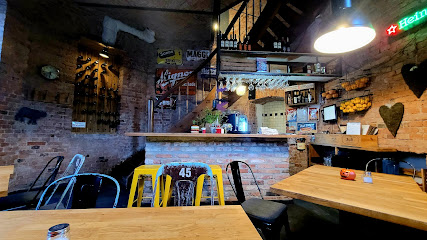
Byblos Mezza House Restauracja Libańska
Discover authentic Lebanese cuisine at Byblos Mezza House in Słupsk – where tradition meets flavor in every dish.
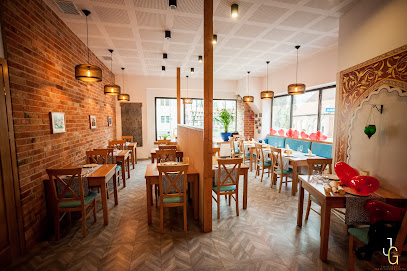
Koty Za Płoty Naleśniki & Cafe
Discover the delightful flavors of Koty Za Płoty Naleśniki & Cafe in Słupsk - where sweet meets savory in every delicious crêpe.
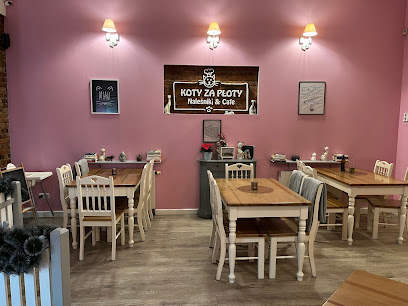
Prohibido
Experience authentic Mexican flavors at Prohibido in Słupsk - where every meal is a celebration of taste.
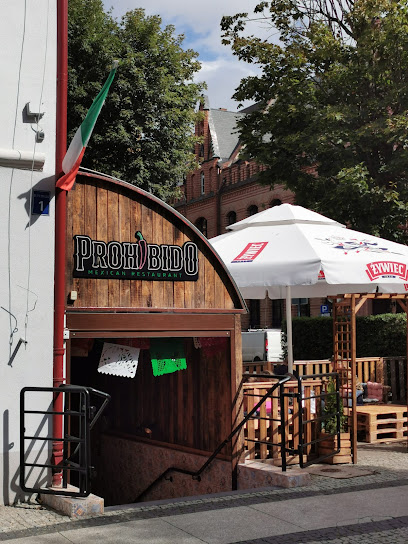
MASALA
Discover the rich flavors of India at Masala in Słupsk – where every dish tells a story.
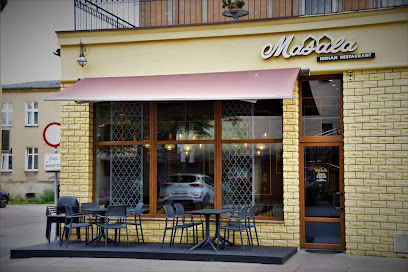
Villa& restauracja Intryga
Experience unparalleled comfort and delightful cuisine at Villa Intryga in Słupsk - your perfect getaway destination.
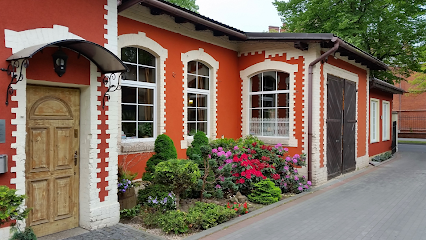
Ottimo Sushi Bar. Restauracja Sushi Słupsk
Experience exquisite sushi and modern Japanese cuisine at Ottimo Sushi Bar in Słupsk – where every dish tells a story.
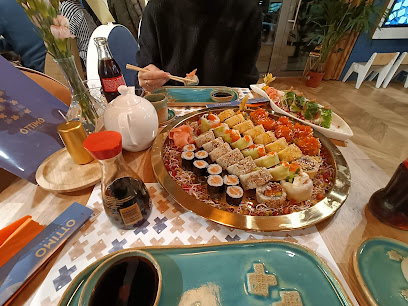
Bar Maja
Experience authentic Polish cuisine at Bar Maja in Słupsk—where tradition meets flavor in an inviting setting.
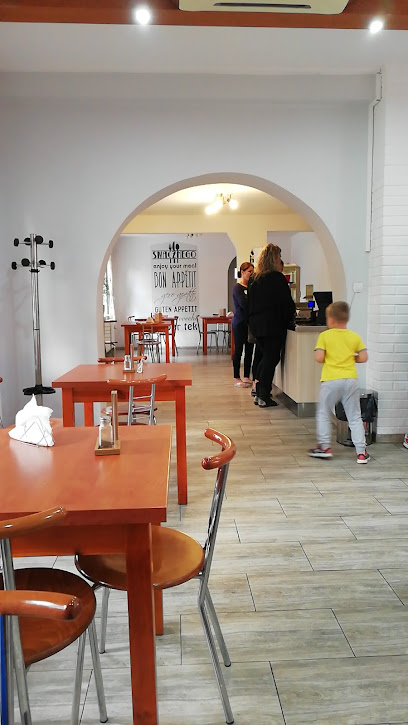
Markets, malls and hidden boutiques
Shopping and Entertainment Centre Jantar
Explore Jantar Shopping and Entertainment Centre in Słupsk, a lively destination for shopping, dining, and fun activities for all ages.
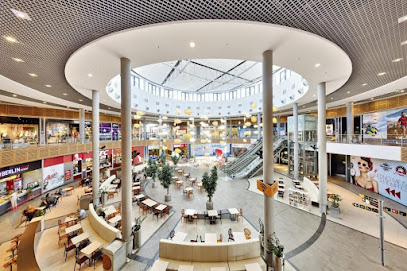
Galeria Słupsk
Explore Galeria Słupsk: A vibrant shopping mall in Słupsk, Poland, featuring diverse shops, delightful eateries, and a lively atmosphere for all ages.
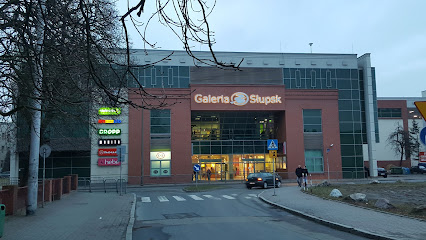
Empik
Explore Empik in Słupsk for a delightful selection of gifts, books, and stationery, perfect for every visitor seeking unique treasures.
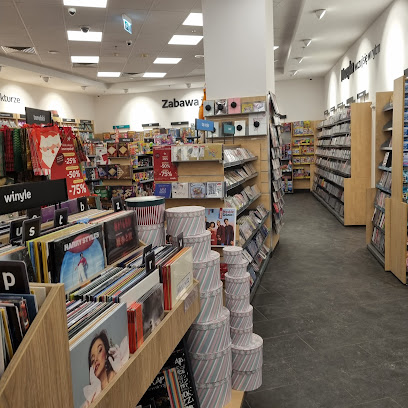
Galeria Podkowa
Discover Galeria Podkowa - Słupsk's premier shopping mall with diverse shops, delightful dining, and engaging entertainment for every tourist.
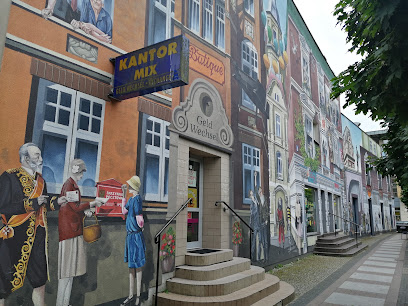
CH Wokulski
Explore CH Wokulski in Słupsk for a diverse shopping experience with trendy stores, delightful dining, and a vibrant atmosphere for every shopper.
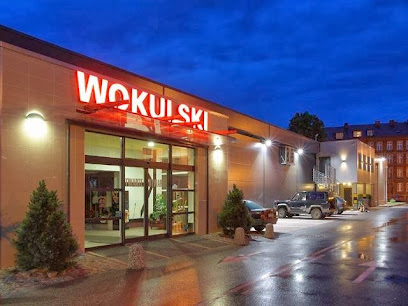
Action Słupsk CH Wokulski
Explore the vibrant Action Słupsk CH Wokulski, a gift shop offering unique souvenirs, DIY supplies, and local crafts in the heart of Słupsk.
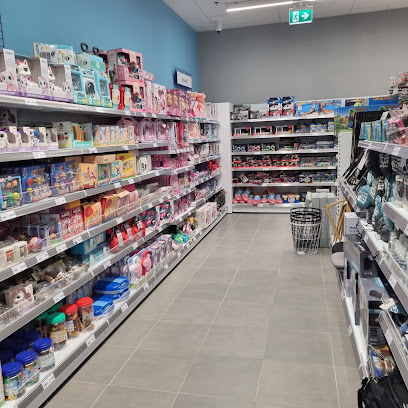
C&A
Explore C&A in Słupsk for trendy and affordable clothing options for the whole family, from stylish dresses to essential outerwear.
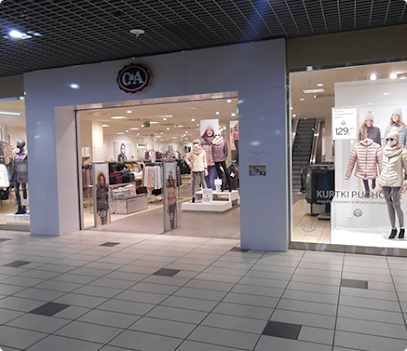
Galeria Sztuki Współczesnej Nowa Brama
Immerse yourself in contemporary creativity at Galeria Sztuki Współczesnej Nowa Brama, a cultural gem in Słupsk showcasing unique art and craftsmanship.
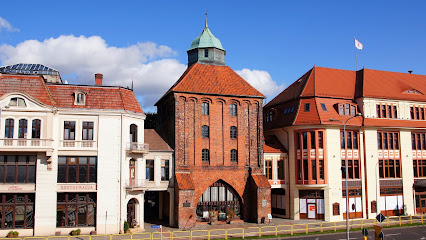
CCC
Discover a wide range of stylish boots and handbags at CCC in Słupsk, where quality meets affordability in every purchase.
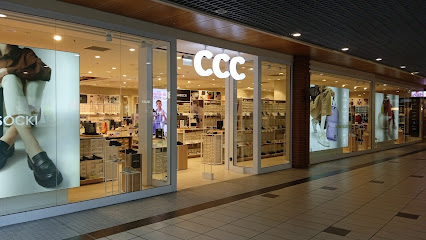
Sklep Sportowy Prestige
Discover top-notch sporting goods at Sklep Sportowy Prestige, where sports passion meets quality and service in the heart of Słupsk.
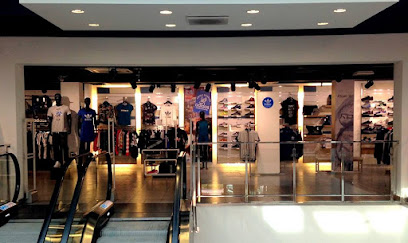
KiK Słupsk
Discover stylish apparel at KiK Słupsk, where affordability meets quality in the heart of Poland's vibrant shopping scene.
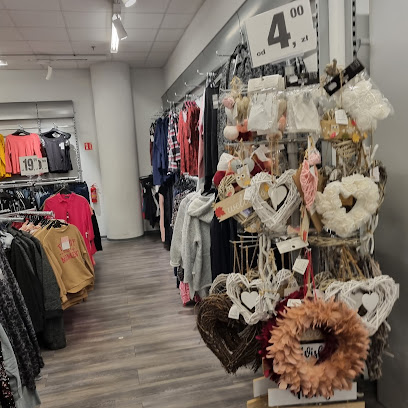
Monnari Słupsk Centrum
Explore the latest in women's fashion at Monnari Słupsk Centrum, a stylish clothing store in the heart of Słupsk, Poland.
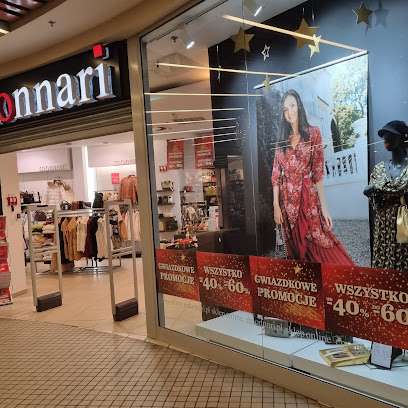
Dealz
Shop smart at Dealz, Słupsk's top discount store for unbeatable prices on everyday essentials and unique finds.
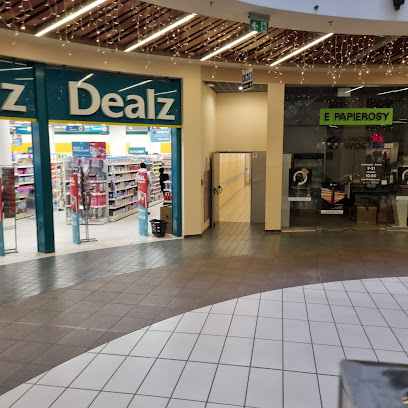
Wyspa IQOS - Galeria Słupsk - Słupsk
Explore Wyspa IQOS in Słupsk for premium tobacco and vaporizer products in a modern shopping environment.
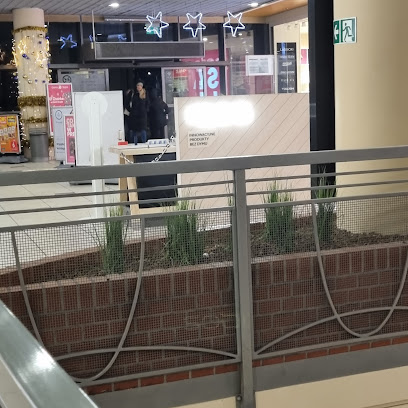
Quiosque - dresses & clothing
Explore Quiosque, Słupsk's premier women's clothing boutique, offering stylish dresses and outfits for every occasion in a welcoming atmosphere.
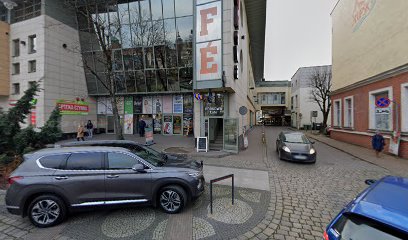
Essential bars & hidden hideouts
Piwiarnia Warka
Discover the lively atmosphere of Piwiarnia Warka, a unique beer hall and Irish pub in Słupsk, perfect for enjoying local brews and vibrant nightlife.
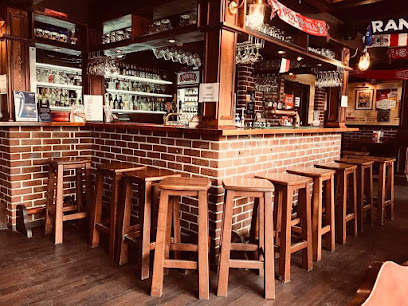
Pub AGA
Discover the lively brewpub experience at Pub AGA in Słupsk, where local craft beers and live music create unforgettable memories.
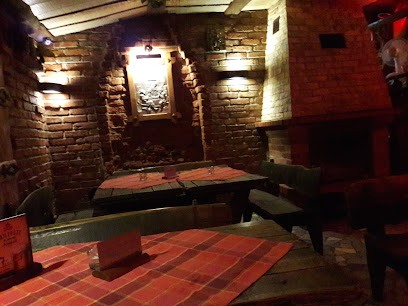
Browaria
Experience the vibrant atmosphere of Browaria, a chic lounge in Słupsk, perfect for cocktails, conversation, and relaxation.
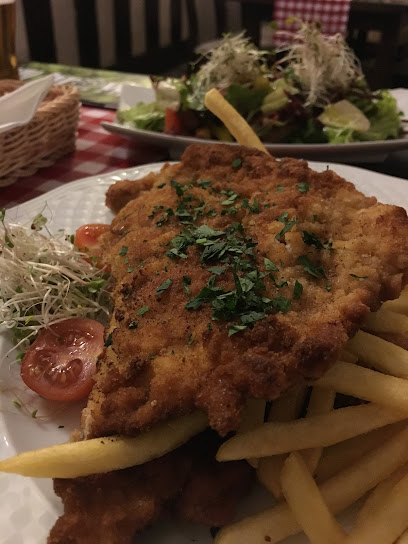
BAR ,,PIOTRUŚ,,
Discover the cozy ambiance and delicious soups at BAR ,,PIOTRUŚ,, in Słupsk, where every meal is a delightful experience.
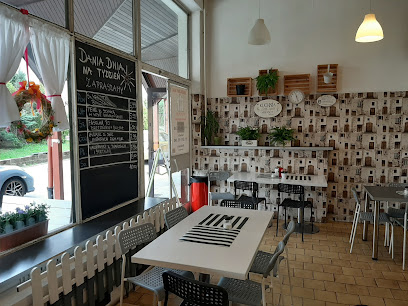
Twister
Discover Twister in Słupsk: A cozy lounge offering a delightful atmosphere and a diverse menu for tourists seeking relaxation and authentic local flavors.
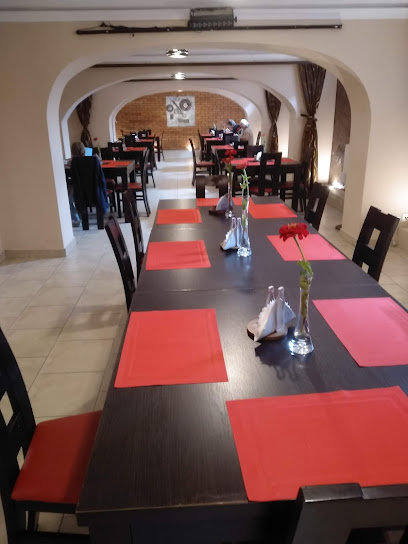
Keller
Experience the vibrant nightlife of Słupsk at Keller, a cozy pub offering affordable drinks and a lively atmosphere.
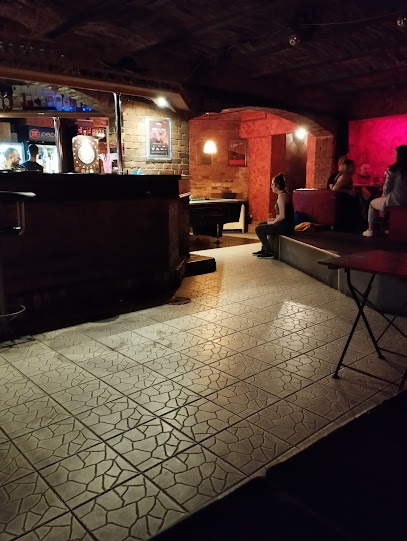
Ministerstwo Śledzia i Wódki
Discover the heart of Polish flavors at Ministerstwo Śledzia i Wódki, a vibrant gastropub in Słupsk known for its herring dishes and extensive vodka selection.
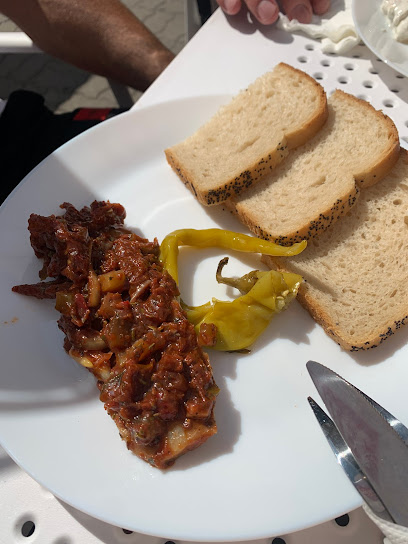
Stare Kino
Experience Słupsk's vibrant nightlife at Stare Kino, a unique bar and brewery offering local brews, cocktails, and a lively atmosphere for all.
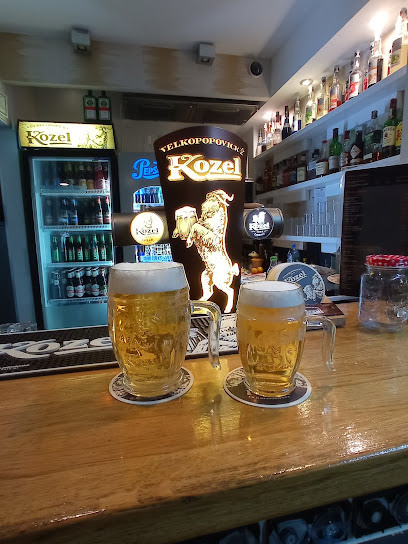
Club 13
Discover Club 13, Słupsk's chic cocktail bar, where expertly crafted drinks and a vibrant ambiance create unforgettable nightlife experiences.
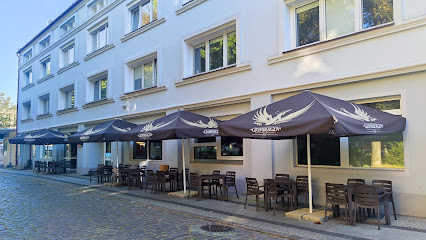
Bar Igorek
Experience the charm of Słupsk at Bar Igorek, where local flavors and friendly vibes create the perfect spot for relaxation and connection.
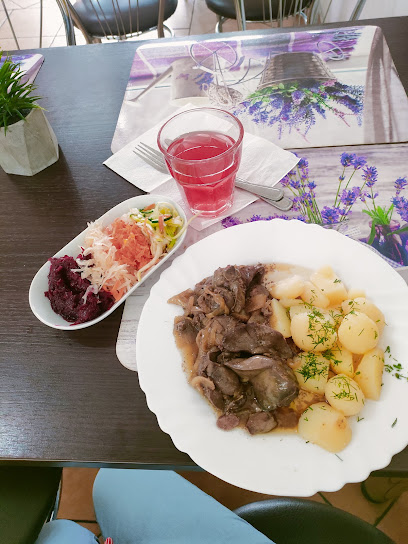
Kanclerz
Experience the lively atmosphere and diverse drink menu at Kanclerz Bar, the heart of nightlife in Słupsk, Poland.
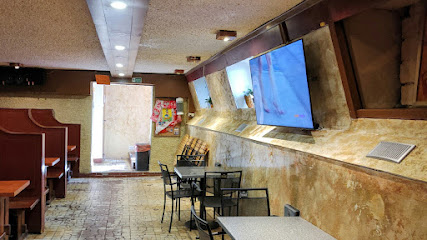
Bar Filipcio Słupsk
Discover the cozy charm of Bar Filipcio in Słupsk, Poland, where friendly service and refreshing drinks create an unforgettable experience.
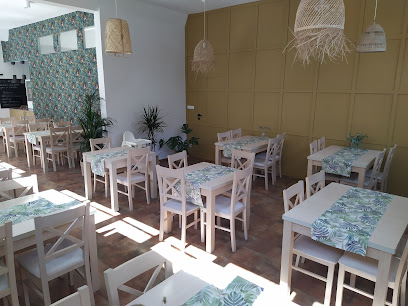
Drink Bar. Giliński B.
Experience the charm of Drink Bar in Słupsk, where great drinks and a cozy atmosphere await tourists seeking relaxation.
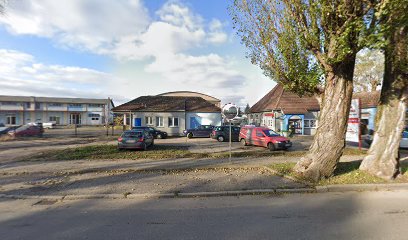
Tawerna. Bar. Kucharczyk W.
Discover the charm of Słupsk at Tawerna Bar - a cozy retreat for tourists with a taste for local culture and fine drinks.
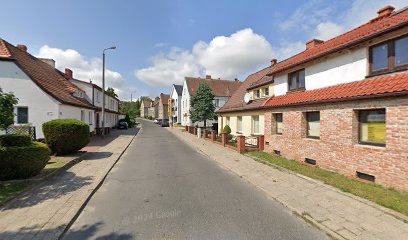
Cool Pub
Experience the lively ambiance and local flavors at Cool Pub in Słupsk, your go-to destination for drinks and socializing.
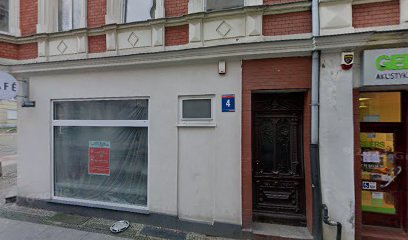
Local Phrases about Słupsk
-
- HelloCześć
[che-shch] - GoodbyeDo widzenia
[do veed-zen-ya] - YesTak
[tak] - NoNie
[nye] - Please/You're welcomeProszę
[pro-she] - Thank youDziękuję
[jen-koo-yeh] - Excuse me/SorryPrzepraszam
[pshe-pra-sham] - How are you?Jak się masz?
[yak shcheh mah-sh] - Fine. And you?Dobrze. A ty?
[dob-zheh. ah tee] - Do you speak English?Czy mówisz po angielsku?
[chi moo-vish po an-gyel-skoo] - I don't understandNie rozumiem
[nye ro-zoo-myem]
- HelloCześć
-
- I'd like to see the menu, pleaseChciałbym zobaczyć menu, proszę
[h-chia-wim zo-ba-cheech meh-noo, pro-sheh] - I don't eat meatNie jem mięsa
[nye yem myen-sa] - Cheers!Na zdrowie!
[nah zd-roh-vee-eh] - I would like to pay, pleaseChciałbym zapłacić, proszę
[h-chia-wim zap-wa-cheech, pro-sheh]
- I'd like to see the menu, pleaseChciałbym zobaczyć menu, proszę
-
- Help!Pomocy!
[po-mo-tsi] - Go away!Odejdź!
[o-dey-j] - Call the Police!Zadzwoń po policję!
[zadz-von po po-li-tsyeh] - Call a doctor!Zadzwoń po lekarza!
[zadz-von po leh-kar-zah] - I'm lostZgubiłem się
[z-goo-bee-wem sheh] - I'm illJestem chory
[yeh-stem ho-ri]
- Help!Pomocy!
-
- I'd like to buy...Chciałbym kupić...
[h-chia-wim koo-pich...] - I'm just lookingTylko się rozglądam
[tsoo-koh shcheh rozh-gwon-dam] - How much is it?Ile to kosztuje?
[ee-leh to kosh-too-yeh] - That's too expensiveTo za drogie
[toh zah drog-yeh] - Can you lower the price?Czy możesz obniżyć cenę?
[chi moo-zhesh ob-nee-zhich chen-eh]
- I'd like to buy...Chciałbym kupić...
-
- What time is it?Która godzina?
[ktoo-rah god-zee-nah] - It's one o'clockJest pierwsza
[yest pyeh-vee-ers-zah] - Half past (10)Pół do jedenastej
[poow do yeh-nyan-stay] - MorningRano
[rah-no] - AfternoonPopołudnie
[po-po-woo-dnyeh] - EveningWieczór
[vyeh-choor] - YesterdayWczoraj
[v-cho-rye] - TodayDzisiaj
[dzee-shey] - TomorrowJutro
[yoo-tro] - 1Jeden
[yeh-den] - 2Dwa
[d-vah] - 3Trzy
[tshih] - 4Cztery
[ch-teh-ry] - 5Pięć
[pyench] - 6Sześć
[shcheh-shch] - 7Siedem
[shyeh-dem] - 8Osiem
[oh-shem] - 9Dziewięć
[dzyev-nye-ch] - 10Dziesięć
[dzye-shyench]
- What time is it?Która godzina?
-
- Where's a/the...?Gdzie jest...
[g-dzhe yest] - What's the address?Jaki jest adres?
[yah-ki yest a-dres] - Can you show me (on the map)?Czy możesz mi pokazać (na mapie)?
[chi moo-zhesh mee po-ka-zach (na ma-pyeh)] - When's the next (bus)?Kiedy jest następny (autobus)?
[kyeh-dy yest nas-tep-ny (ow-to-boos)] - A ticket (to ....)Bilet (do ....)
[bee-let (do)]
- Where's a/the...?Gdzie jest...
History of Słupsk
-
Słupsk, known in German as Stolp, was first mentioned in historical records in the 12th century. The town received its city rights in 1265, during the reign of the Griffin dynasty, which ruled over the Duchy of Pomerania. The medieval architecture, including the remnants of the city's defensive walls and the magnificent Castle of the Pomeranian Dukes, speaks to its storied past.
-
During the late Middle Ages, Słupsk became a prosperous member of the Hanseatic League—a powerful economic and defensive alliance of merchant guilds and their market towns in Northwestern and Central Europe. This affiliation brought wealth and trade opportunities to the city, fostering its growth and development.
-
In the 17th century, the Thirty Years' War reshaped the political landscape of Europe. Słupsk came under Swedish control in 1648 as a result of the Peace of Westphalia. The Swedish rule left a lasting impact on the city's architecture and cultural heritage, which can still be seen today.
-
Following the partitions of Poland in the late 18th century, Słupsk was incorporated into the Kingdom of Prussia. This period saw significant urban development and modernization. The construction of new public buildings, such as the town hall and schools, marked a new era for the city.
-
Słupsk was heavily impacted by World War II. The city, then part of Germany, suffered extensive damage during the war. In 1945, following the Potsdam Conference, Słupsk was incorporated into Poland. The post-war years were marked by reconstruction and the resettlement of Polish citizens, shaping the modern identity of the city.
-
The late 20th and early 21st centuries have seen a cultural renaissance in Słupsk. The city has become known for its vibrant arts scene, including the annual International Piano Festival dedicated to Polish composer Ignacy Jan Paderewski. Słupsk's rich cultural heritage is celebrated through its museums, theaters, and galleries.
Słupsk Essentials
-
Słupsk is located in the Pomeranian Voivodeship in northern Poland. The nearest major airport is Gdańsk Lech Wałęsa Airport, approximately 120 kilometers away. From Gdańsk, you can take a train, bus, or rent a car to reach Słupsk. The train journey typically takes around 2 hours and offers a comfortable ride. Buses are also available but may take a bit longer. Renting a car provides the flexibility to explore the surrounding areas at your own pace.
-
Słupsk has a reliable public transportation system that includes buses and taxis. The city is compact, making it easy to explore on foot or by bicycle. For longer distances, local buses are efficient and affordable. Taxis are readily available and can be hailed on the street or booked via mobile apps. Car rental services are also available for those who prefer to drive.
-
The official currency in Poland is the Polish Złoty (PLN). Credit and debit cards are widely accepted in hotels, restaurants, and shops. However, it is advisable to carry some cash, especially when visiting smaller establishments or local markets. ATMs are readily available throughout Słupsk, and currency exchange services can be found at banks and exchange offices.
-
Słupsk is generally a safe destination for tourists. However, as with any city, it is important to take standard precautions. Avoid walking alone at night in unfamiliar areas and keep an eye on your belongings in crowded places. There are no specific high-crime areas targeting tourists, but it is always best to stay vigilant and aware of your surroundings.
-
In case of an emergency, dial 112 for immediate assistance. This number connects you to the police, fire department, and medical services. The local hospital in Słupsk is well-equipped to handle medical emergencies. Pharmacies are also available for minor health issues and over-the-counter medications. It is recommended to have travel insurance that covers medical emergencies.
-
Fashion: Do dress modestly, especially when visiting religious sites. Avoid wearing overly revealing clothing. Religion: Do respect local customs and traditions. When visiting churches, it is customary to cover your head and shoulders. Public Transport: Do be respectful and give up your seat to elderly passengers. Don't eat or drink on public transport. Greetings: Do greet people with a handshake. A friendly 'Dzień dobry' (Good day) is always appreciated. Eating & Drinking: Do try local Polish delicacies and be open to new flavors. Don't refuse hospitality, as it is considered impolite.
-
To experience Słupsk like a local, visit the local markets where you can buy fresh produce and traditional Polish goods. Engage with locals, as they are often friendly and willing to share stories about the city's history and culture. Don't miss visiting the Słupsk Castle and the Museum of Central Pomerania. For a unique experience, take a walk along the Słupia River, offering beautiful views and a peaceful atmosphere.
Trending Landmarks in Słupsk
-
Park of Culture and Recreation
-
The William Wallace
-
Baszta Czarownic
-
Museum of Central Pomerania in Slupsk
-
Biały Spichlerz
-
Northern Forest
-
Lasek Południowy
-
Słupsk Gate
-
Pomnik Powstańców Warszawskich
-
Browar Słupski
-
Pomnik Jana Kilińskiego w Słupsku
-
Stare Mury Obronne
-
Słupski Letni Jarmark
-
Pomnik Karola Szymanowskiego w Słupsku
-
Pomnik Upokorzony w Słupsku
Nearby Cities to Słupsk
-
Things To Do in Gdansk
-
Things To Do in Elblag
-
Things To Do in Bydgoszcz
-
Things To Do in Torun
-
Things To Do in Szczecin
-
Things To Do in Poznan
-
Things To Do in Olsztyn
-
Things To Do in Kalmar
-
Things To Do in Klaipėda
-
Things To Do in Copenhagen
-
Things To Do in Rostock
-
Things To Do in Berlin
-
Things To Do in Køge
-
Things To Do in Helsingør
-
Things To Do in Roskilde










